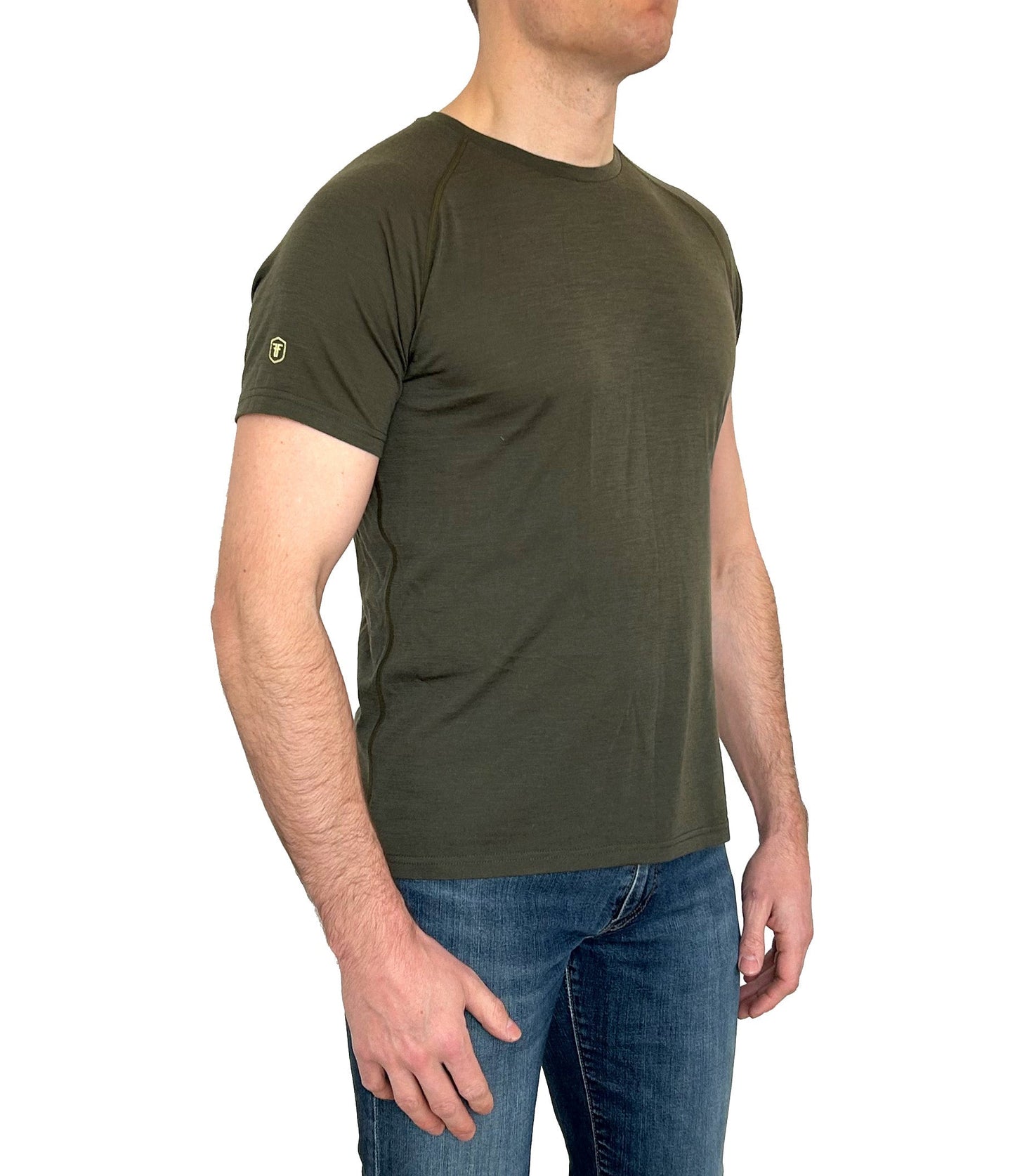
Whether you're hiking alpine trails, setting up camp in the forest, or navigating sun-drenched valleys, the right clothing can make or break your outdoor experience. That’s why shirts made from a Merino wool-nylon blend have become a top choice for outdoor enthusiasts. It keeps you warm in cold mornings and cold in warm afternoons. These garments offer the rare combination of comfort, temperature adaptability, and long-term durability—making them a trusted companion in both cold and warm weather conditions.
Understanding Merino Wool and Its Outdoor Advantages
Merino wool is a natural fiber obtained from Merino sheep, renowned for its fine, soft, and breathable qualities. Unlike traditional wool, Merino fibers are much finer, allowing them to bend more easily and provide a soft, non-itchy feel against the skin. This makes Merino wool garments exceptionally comfortable for prolonged wear.
Scientific studies back this up. Merino wool can absorb up to 35% of its dry weight in moisture without feeling wet, helping to maintain a stable microclimate against the skin.
The fiber's unique structure contributes to its thermoregulatory properties. Merino wool can absorb moisture vapor, keeping the skin dry and maintaining a stable body temperature. This makes it particularly suitable for outdoor activities where conditions can vary significantly.
However, while Merino wool offers numerous benefits, it can be less durable than synthetic fibers. To enhance its strength and longevity, Merino wool is often blended with nylon. This combination leverages the natural comfort and performance of Merino wool with the durability and resilience of nylon, resulting in garments that are well-suited for the demands of outdoor environments.
Thermoregulation: Nature's Climate Control
Merino wool is a master of temperature regulation. In cold weather, its crimped fibers trap air, creating a layer of insulation that keeps body heat in. In warmer conditions, Merino’s moisture-wicking properties come into play. The fiber pulls sweat from the skin and releases it as vapor, creating a cooling effect through evaporation.
This dual-action response helps maintain a stable body temperature regardless of external conditions—a fact confirmed by independent studies such as those conducted by AgResearch New Zealand and published in the Journal of Sports Science and Medicine.
Odor Resistance: Stay Fresh Longer
Merino wool naturally resists odor, thanks to its ability to absorb odor-causing bacteria and trap them within its fibers until the garment is washed. A 2004 study conducted by the Hohenstein Institute in Germany found that wool outperforms synthetic fibers in odor control, even after extended wear.
This makes Merino wool ideal for multi-day hikes or long trips where frequent washing isn’t practical.
UV Protection: Natural Defense Against Sun Exposure
Merino wool provides inherent ultraviolet protection. According to research, wool fabrics offer a UV protection factor (UPF) of 30–50+, depending on thickness and weave. That’s a serious bonus when you're exposed to the sun for extended periods in the outdoors.
Enhanced Durability with Nylon
The addition of nylon significantly improves Merino’s durability. Nylon fibers reinforce the fabric, helping it resist abrasion and maintain its shape through repeated wear and washing. This blend ensures that shirts can handle outdoor demands—from scrambling over rocks to carrying a backpack—while retaining Merino's comfort and breathability.
With scientifically supported benefits like thermal regulation, odor resistance, UV protection, and improved durability, Merino wool-nylon blend shirts are engineered for outdoor performance. Whether you're tackling cold alpine air or sun-drenched summer trails, these shirts provide year-round comfort, resilience, and peace of mind.
Stay tuned for our next deep dives into why this fabric excels specifically in cold weather and warm weather conditions.
